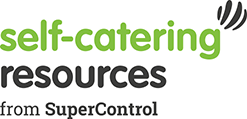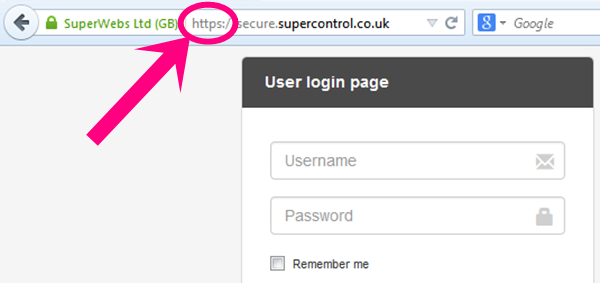Using the Internet has made everything so much more convenient – from running your business and online banking to downloading books and music, to staying in touch with friends and family. This means it is now more important than ever to check that your information is secure. Want to know how? Some of the team that are responsible for SuperControl’s system security share their top tips about how to stay safe on the Internet:
1. Be wary of emails from unknown senders
Any emails that arrive from a new sender should always be opened with caution. Emails are the number 1 way that online accounts get compromised.
- Phishing emails are designed to prompt you to fill in personal information such as passwords or your bank account details. Other emails may contain software that installs programs on your computer without you knowing; these emails typically have an attachment that you are asked to open.
- Be wary of all attachments. Especially those in an email you weren’t expecting from someone you don’t know. The most common format used in malicious attachments is PDF but also look out for attachments that end in .exe, .bat, .dll. or .ZIP.
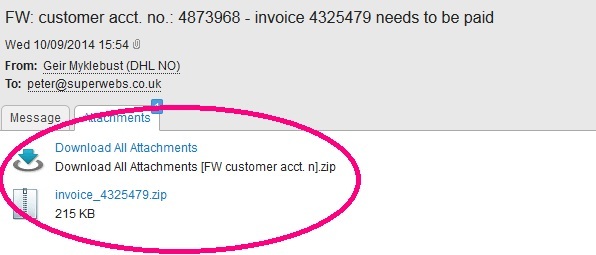
Unless you are certain that you trust who sent it, do NOT open. - Alarm bells should be ringing if the email contains some blatant spelling errors, especially if it contains a link to another website. Always check it is genuine before opening – see how in 3. Look out for links below.
2. Don’t be fooled by fake websites
When you do a search on e.g. Google or any other internet search engine, watch out. The first few results in the list are often paid adverts and may not necessarily be what you wanted. When accessing a website that requires a username and password, check that the address bar starts with https (the s means it is secure); this ensures that your password and what you are viewing is safe when it passes through the internet.
3. Look out for links
Just as links included in an email can be forged, so can links within a website. To check it is genuine hover your cursor over the link to reveal the actual URL address that clicking it will take you to – all might not be as it seems.
Within an email it will show as a pop up box on your screen (this example also highlights spelling mistakes that a genuine email from a reputable business would be unlikely to contain, as mentioned above in 1):
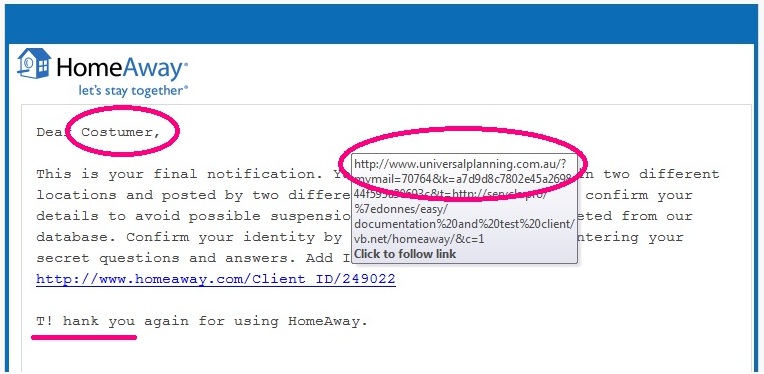
On a website the actual URL will show at the bottom of your browser:
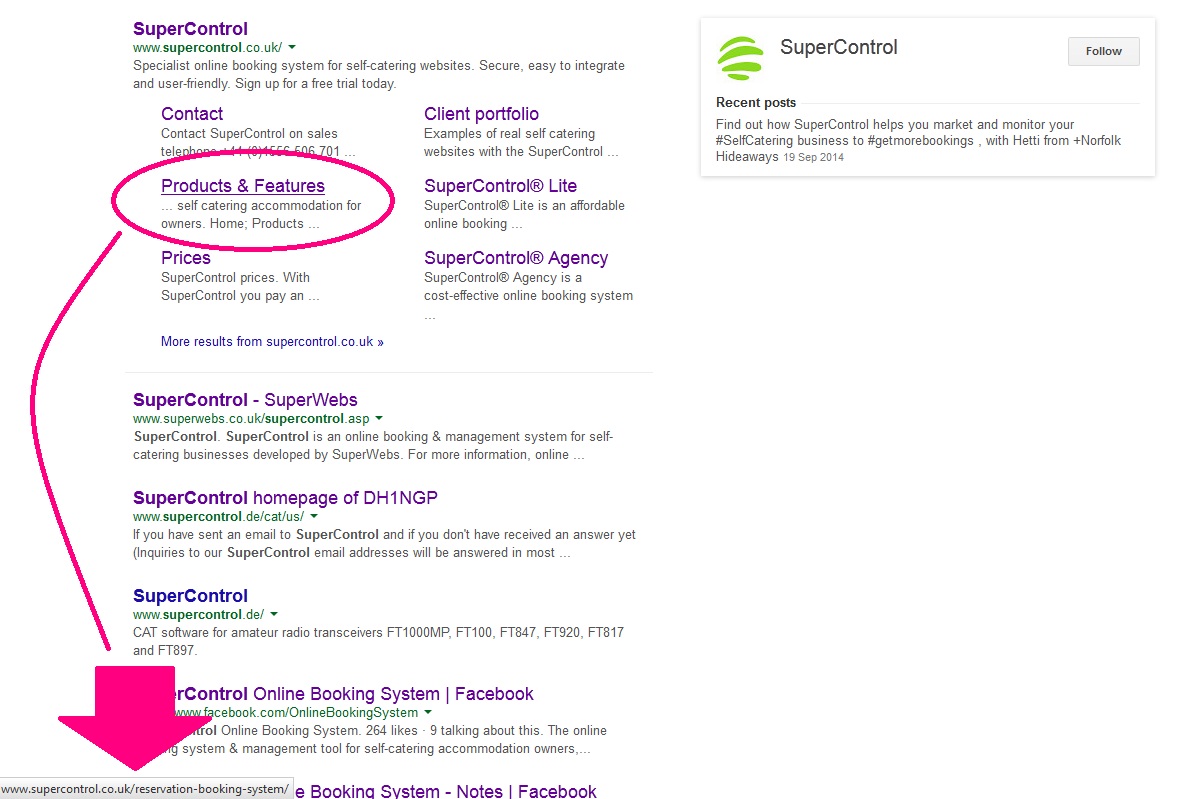
4. Never hand over your personal details
At SuperControl we will never ask you for your SuperControl login password. Sometimes we may need other login details from you to set up integrations with different systems (e.g. to set up your Facebook apps) – but we would never contact you out of the blue to ask for these details. Any information requested from us would be in response to an integration you have asked us to set up on your behalf.
5. Keep your Internet browser up to date
Older Internet browsers contain vulnerabilities that can be exploited by criminals – that is the reason they are always bringing out new versions or updates. Older browsers can also struggle to deliver modern content. The SuperControl development team has designed the system to be used on a wide variety of devices including tablets and mobile phones. However some older browsers may not be able to display all the features properly. All the major browsers such as Internet Explorer, Google Chrome, Firefox, Safari etc. can easily be upgraded. If you have difficulties upgrading we can provide further advice.
6. Check your anti-virus status
Computers running Microsoft Windows are especially vulnerable. Windows 8 has a basic anti-virus built in, but older versions do not. Computers that run Apple or Linux software are less vulnerable but can still be targeted. Several free versions of anti-virus are available; more comprehensive versions available include Microsoft, Bit defender and Avast.
Anti-virus helps to protect your computer but it doesn’t replace user awareness. Lots of malware doesn’t get picked up by anti-virus software so you still need to think twice before opening emails.
7. Update your operating system
Keeping your operating system up to date is important for a variety of reasons. The latest Internet browsers will only run on modern operating systems; older systems like Windows XP are now dangerously outdated and have numerous vulnerabilities that can’t be fixed. If you’re still running an operating system older than Windows 7 now is the time to upgrade.
8. Perfect your passwords
We know that passwords can be a nightmare. However using a simple password or one that can be found in a dictionary can be cracked within minutes; and if you have used that same password on more than one website you put yourself at greater risk. Passwords should be unique for all important websites. They should be complex, a minimum of 10 characters and use a combination of upper case, lower case, numbers and special characters. The longer the password the better, however do not use a word that can be found in a dictionary as these are very easy to crack. If you have lots of passwords consider using a password manager that stores all your passwords. e.g KeePass and LastPass.
Rest assured that SuperControl itself is protected by multiple levels of security, and our technical team constantly monitor the systems.

